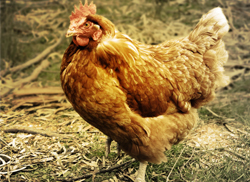
Kuku Farm is a 15-minute drive from Naivasha town and is a leading hatchery for indigenous chicken in Nakuru County.
n an area best known for flower farming, this state-of-the-art chicken hatchery comes as a pleasant surprise. Located on a seven-acre farm in the Karati area is a multimillion-shilling poultry investment by veterinarian Tony Kiragu. Nature Kuku Farm specialises in hatching Kalro Kienyeji chicks.
The articulate and amiable farmer returned from the United States to set up the hatchery. He had worked on a poultry farm in America for seven years, having won a Green Card but decided to return to his motherland.
“I could no longer contain the urge to come back and follow my dream,” he says.
Everything is done with precision from the time eggs are received to the time the chicks are finally loaded for transportation to farmers. Employees in yellow and white gumboots move fleetingly through the different rooms in the hatchery and in the chicken pens.
On his return in 2015, the Kenya Agricultural and Livestock Research Organisation (Kalro) had released improved kienyeji chickens, which had become quite popular. “I had sniffed a business opportunity and went for it,” he recalls. Despite a few hiccups, Nature Kuku was born and sealed with the shipment of the multimillion shilling equipment to the farm. “Once you vaccinate indigenous chickens and maintain proper hygiene, they do quite well,” he says.
Improved kienyeji chickens produce up to 280 eggs annually compared to pure breeds that lay on average 150 eggs. The improved cockerel weighs about two-2.5kg at four months while the exotic ones weigh about 1.5kg.
The farmer purchases 33,000 eggs from Kalro weekly. He decided to partner with Kalro because of its high quality and well-researched breeding system. Today, Mr Kiragu guarantees a farmer of an F1 chick, meaning that no inbreeding has occurred, thus maintaining a high quality of chicks. “Inbreeding causes chicks to grow slowly. It also makes the hens start laying late,” says the farmer.
On entering the farm, you instantly get the feeling of its enormity. There are huge setters (incubators) loaded with thousands of eggs, hatchers (cabinet-like incubators for hatching eggs), trolleys loaded with eggs, and a large number of rooms.
Everything is done with precision from the time eggs are received to the time the chicks are finally loaded for transportation to farmers. Employees in yellow and white gumboots move fleetingly through the different rooms in the hatchery and in the chicken pens.
Sorting of eggs
The process begins with the reception of eggs, which are then sorted. Large and very small, as well as cracked, dirty, and abnormally shaped are removed. The chosen eggs are then put in setter trays, which are placed on trolleys.
Fumigation
The eggs are fumigated for 15 minutes and the fumes sucked out of the room through an exhauster.
Incubation
After this, the eggs are moved through two stages of incubation. They are first put into a setter (incubator) for 18 days. Temperature, humidity, ventilation and turning are the most important factors that are regulated and monitored. Acceptable temperature standards range from 37.5 to 37.8 degrees Celsius, with the humidity normally set at 60 per cent, while the eggs are turned at 45 degrees three times a day. When the 18 days are over, the eggs are moved into hatching trays. Here they spend another three days and hatching begins on day 21. The temperature is then set to dry and fluff the chicks. The hatched chicks are removed with the dead or deformed chicks removed.
Vaccination
The chicks are then vaccinated against Marek’s and Newcastle diseases and infectious bronchitis. They are then placed in boxes that hold 100 chicks. An extra two chicks are added per box. The chicks are then loaded into vehicles to deliver them to farmers.
The farmer currently produces only 15,000 chicks a week, against a projection of 30,000 chicks. The shortage of quality eggs has forced the farmer to start his own production. Mr Kiragu is optimistic that the farm will be self-sustaining in the near future.
Power blackouts are also big challenge, forcing them to use a generator, which is expensive. “However, we are now looking into solar energy as a solution,” he adds. Another challenge is transportation. “Our dream is to one day own a fleet of vehicles to distribute to different areas,” he says. He plans to digitalise his business to attract more customers and offer lessons to those interested in starting chicken rearing businesses. At a fee of Ksh2,500 to Ksh3000, he offers lessons on poultry keeping, with potential farmers trooping to his hatchery.
His determination is palpable as the farmer dreams about rivalling big successful companies. The chicks are then vaccinated against Marek’s and Newcastle diseases and infectious bronchitis. They are then placed in boxes that hold 100 chicks. An extra two chicks are added per box. The chicks are then loaded into vehicles to deliver them to farmers. The farmer currently produces only 15,000 chicks a week, against a projection of 30,000 chicks. The shortage of quality eggs has forced the farmer to start his own production.
Mr Kiragu is optimistic that the farm will be self-sustaining in the near future. Power blackouts are also big challenge, forcing them to use a generator, which is expensive. “However, we are now looking into solar energy as a solution,” he adds. Another challenge is transportation. “Our dream is to one day own a fleet of vehicles to distribute to different areas,” he says.
He plans to digitalise his business to attract more customers and offer lessons to those interested in starting chicken rearing businesses. At a fee of Ksh2,500 to Ksh3000, he offers lessons on poultry keeping, with potential farmers trooping to his hatchery. His determination is palpable as the farmer dreams about rivalling big successful companies.
